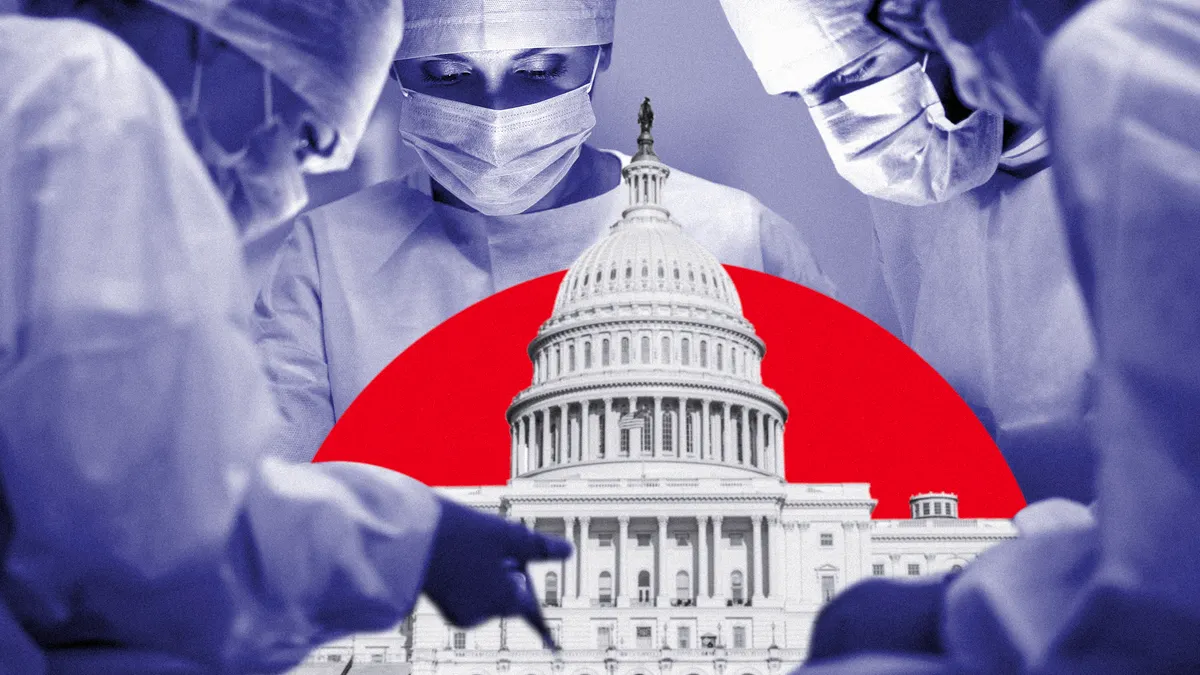September 2025 U.S. Healthcare and Insurance Regulatory Outlook

The U.S. Congress reconvenes from its August recess with a significant focus on government funding, particularly the need to extend funding beyond the September 30, 2025 deadline. The current continuing resolution expires on this date, and with approximately 28 days remaining, Congress faces a challenging timeline to reach an agreement.
A government shutdown remains a probable outcome, with federal agencies likely to operate under a series of short-term continuing resolutions (CRs) due to the improbability of enacting all 12 appropriations bills before October 1, 2025. The House Appropriations Committee plans to address key appropriations bills in September, including the often-contentious Labor, Health and Human Services, Education and Related Agencies Bill, which includes numerous policy riders affecting healthcare and education sectors.
In health leadership developments, several senior officials have departed the Centers for Disease Control and Prevention (CDC), with HHS Secretary Robert F. Kennedy, Jr. scheduled to testify before the Senate Finance Committee on September 4, 2025, regarding changes in CDC leadership and President Trump's 2026 healthcare agenda. The acting CDC director is Jim O'Neill, a former HHS official with experience in science and technology foundations. Congressional committees have scheduled multiple healthcare-related hearings in early September to explore topics such as the integration of artificial intelligence in healthcare and protections for older workers.
Additionally, the Senate Finance Committee will consider key nominations for HHS leadership roles. Key upcoming deadlines include the House Appropriations Committee markup of the Labor/HHS bill, the publication of the August Consumer Price Index report, and the comment deadlines for Medicaid Physician Fee Schedule and Outpatient Prospective Payment System proposed rules. The Advisory Committee on Immunization Practices (ACIP) is slated to meet in mid-September to discuss vaccine policies for COVID-19, Hepatitis B, RSV, and MMRV vaccines, amid calls for postponement due to CDC leadership changes.
The Trump Administration's recent use of a pocket rescission to cancel nearly $5 billion in foreign aid without congressional approval has sparked legal discussions and bipartisan concern, potentially complicating government funding talks. On rural health, CMS has launched the Rural Health Transformation Program website, outlining program goals and application dates aimed at improving rural healthcare delivery. The FDA revoked emergency use authorizations for COVID-19 vaccines in late August, shifting to marketing authorizations for higher-risk populations and changing vaccine accessibility for the general public.
Medicare and Medicaid advisory commissions have several scheduled meetings in September to discuss payment policies, access to hospice services, and Medicare Advantage enrollment impacts. The NIH issued new policies limiting the use of artificial intelligence in grant applications to preserve originality and integrity in peer review, highlighting emerging compliance standards related to AI.
CMS announced an AI-focused competition, the Crushing Fraud Chili Cook-Off, to develop scalable fraud detection technologies in Medicare claims. These developments collectively illustrate the evolving regulatory and funding landscape facing U.S. healthcare and insurance markets as fiscal year 2026 approaches.
